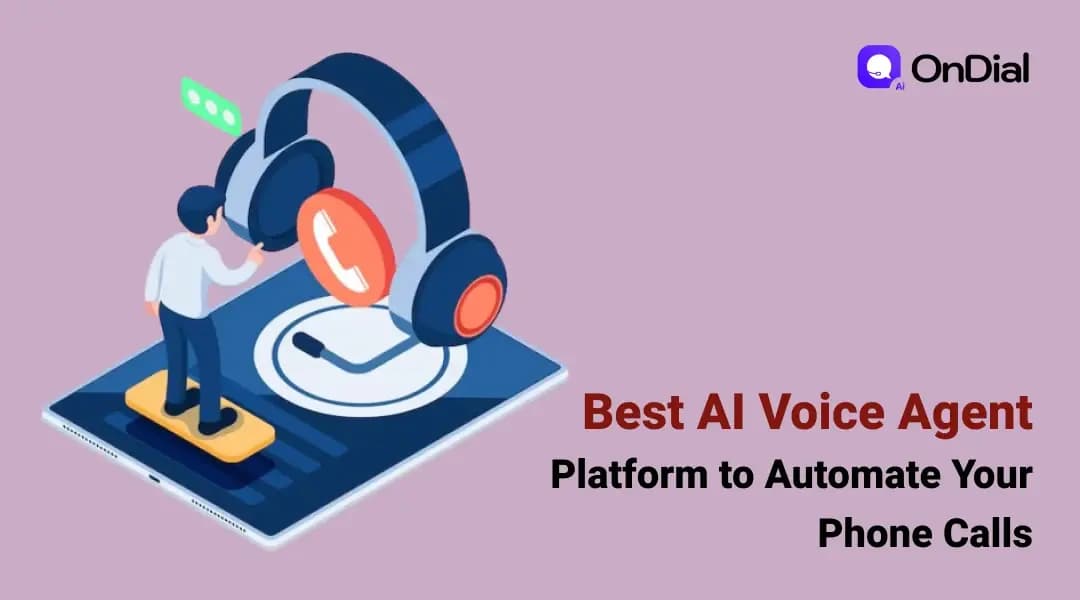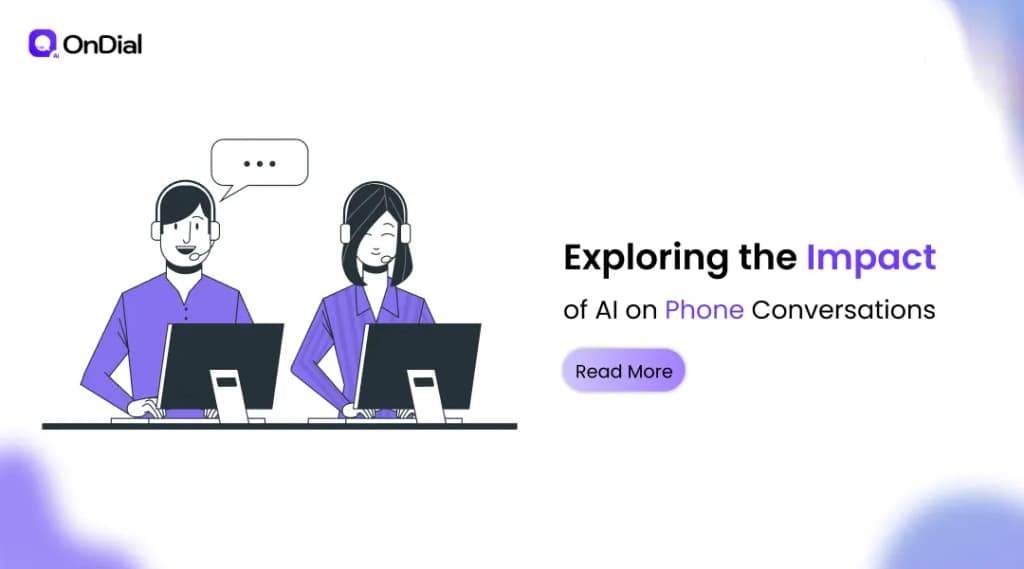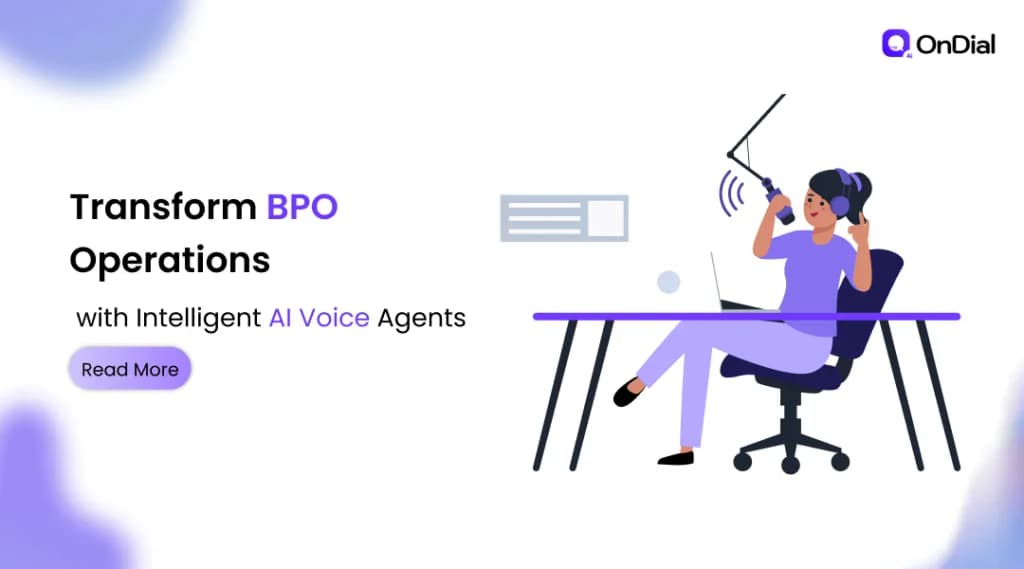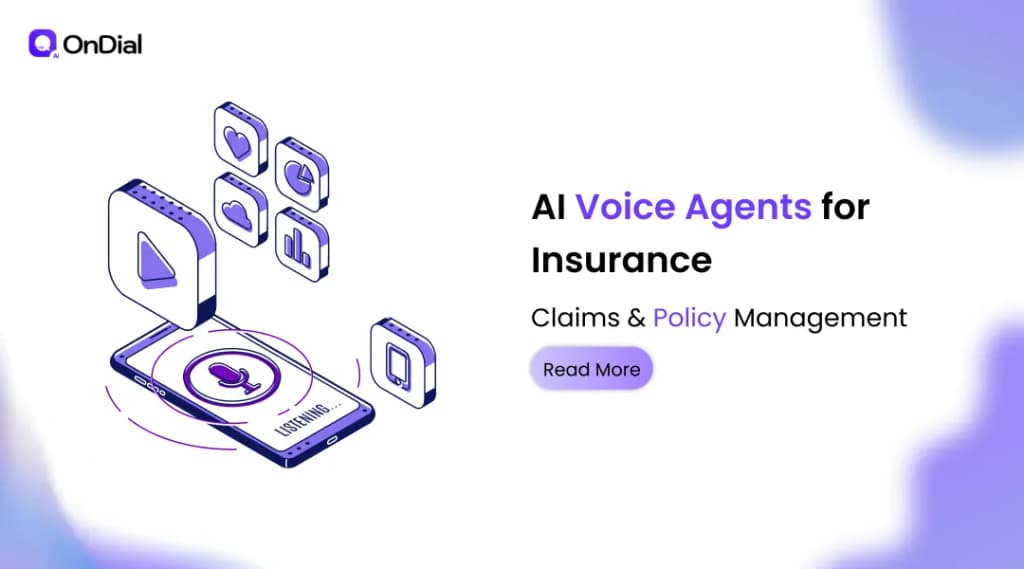Let me guess. You've pitched a dozen “AI voice agent” solutions this month. They all sound brilliant , until you actually think about putting them in front of real customers. Will they save time? Or just turn your customer experience into a cold, robotic nightmare? I’ve seen both outcomes. This article exists to help you avoid the second one.
I’ve spent the last decade helping companies like yours automate phone calls in a way that actually works. No marketing fluff. Just what you need to know before you invest a single rupee, including why I believe OnDial is currently the best AI voice agent platform for most businesses.
Benefits of Using AI Voice Agents
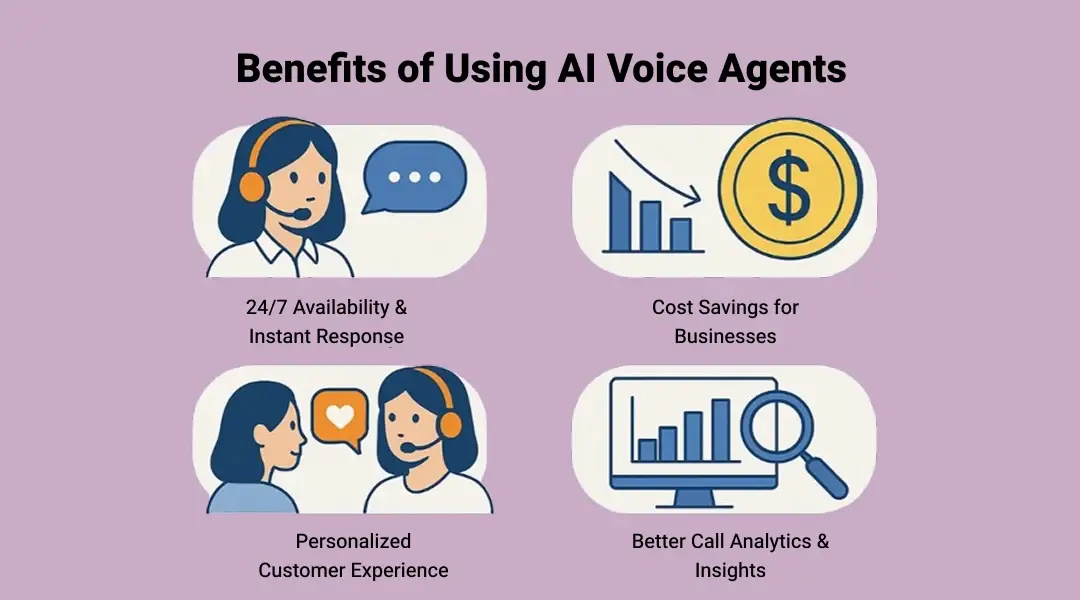
24/7 Availability & Instant Response
Customers hate waiting. AI voice agents never sleep, never call in sick, and never take lunch breaks. This means your business stays reachable 24/7. That alone can boost lead capture and customer satisfaction dramatically.
Cost Savings for Businesses
Hiring, training, and managing call center staff is expensive. AI phone call automation can handle routine calls, appointment booking, FAQs, order status — so your human team can focus on complex cases. Translation: fewer salaries, fewer HR headaches.
Personalized Customer Experience
Here’s the kicker, AI doesn’t have to feel robotic. With good NLP and CRM integration, your AI call bot can greet customers by name, remember past interactions, and even sound empathetic. Done right, this can make customers feel more cared for, not less.
Better Call Analytics & Insights
Unlike humans, AI never forgets. Every call can be logged, transcribed, and analyzed. This gives you crystal-clear insights into customer needs, peak call times, and team performance. Better data = better decisions.
Key Features to Look for in an AI Voice Agent Platform
Natural Language Processing (NLP)
Your AI should actually understand what customers are saying,not just match keywords. Look for platforms with advanced NLP models trained on real-world conversations.
Multi-Language Support
If your customers speak more than one language, your AI needs to as well. Don’t let language barriers cost you leads.
CRM & Workflow Integrations
Your AI voice assistant should talk to your CRM, ticketing system, and calendar tools. Otherwise, it’s just a fancy answering machine.
Real-Time Call Transcription & Analytics
Real-time transcripts help managers coach staff, refine scripts, and catch issues before they snowball.
Easy Customization & Scalability
Can you update call flows without begging a developer for help? Will it scale when you grow from 100 calls/day to 1,000? These questions matter.
Why OnDial Stands Out in 2025
OnDial has built a reputation for being the go-to platform for businesses that want human-centric AI voice automation without the complexity. Unlike generic call bots, OnDial’s platform offers:
- Customizable Call Flows: No-code editor that lets you adapt scripts in minutes.
- Context-Aware Conversations: NLP tuned for real-world Indian and global customer interactions.
- Budget-Friendly Pricing: Transparent plans designed for SMBs and enterprise-scale rollouts.
- Partnership Approach: A team that works with you to train your AI voice assistant on your unique data, not just a one-size-fits-all model.
For most businesses I’ve worked with in India and abroad, OnDial strikes the best balance between cost, scalability, and genuine customer experience.
Top AI Voice Agent Platforms in 2025
A quick, honest snapshot:
- OnDial: Best for businesses wanting tailored, human-centric solutions with strong local support.
- Google Dialogflow: Great NLP, strong integrations, but can get pricey.
- Twilio Voice: Flexible, developer-friendly, but requires technical setup.
- PolyAI: Known for natural-sounding conversations, but mostly enterprise-focused.
- Observe.AI: Strong analytics and agent assist tools, slightly more complex to configure.
- Yellow.ai: Excellent for multi-channel automation, but you’ll need expert onboarding.
How to Choose the Best Platform for Your Business
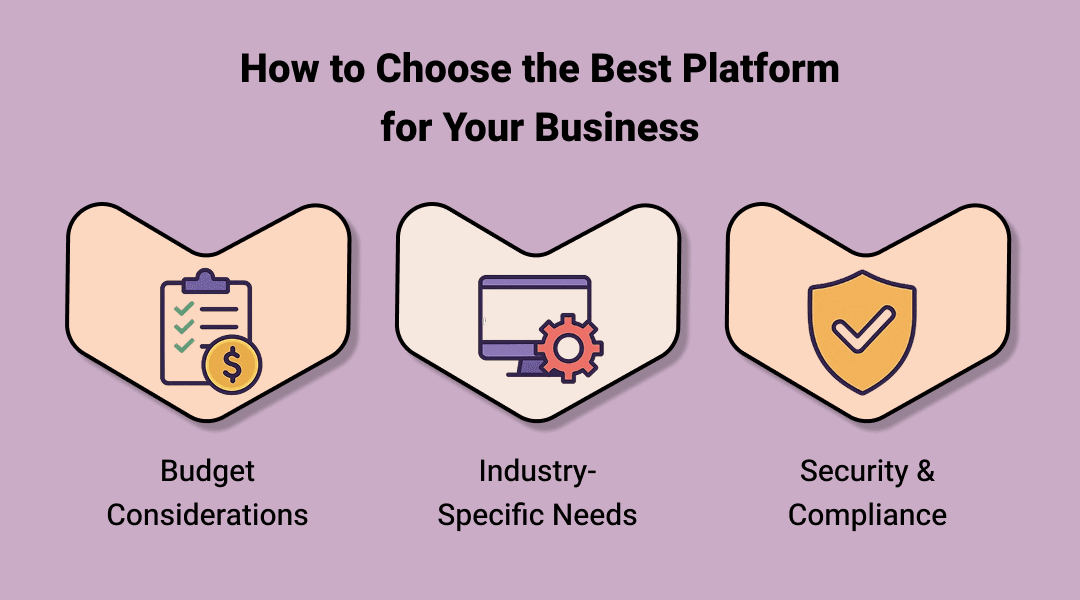
Budget Considerations
AI call automation ranges from affordable pay-per-minute models to enterprise-level contracts. Decide how much you’re willing to spend before you fall in love with bells and whistles you don’t need.
Industry-Specific Needs
A clinic’s scheduling needs look nothing like a SaaS company’s lead-qualification workflow. Make sure your platform supports your specific use case, not just generic “customer calls.”
Security & Compliance
Don’t skip this. If you’re in finance, healthcare, or legal, your AI must be GDPR/CCPA compliant and support call recording policies.
Implementation Tips for Maximum ROI
Start with a Pilot Project
Don’t automate everything at once. Pick one type of call - like appointment scheduling and run a 4-6 week pilot.
Train Your AI with Real Call Data
Feed it real transcripts. The more real-world examples your AI sees, the smarter it becomes.
Monitor & Optimize Continuously
Your AI voice assistant is not “set and forget.” Review call logs, tweak flows, and retrain models regularly.
Common Mistakes to Avoid When Automating Calls
Over-Automating Human-Centric Tasks
Just because you can automate something doesn’t mean you should. Complex complaints? Angry customers? Still better handled by a human.
Ignoring Customer Feedback
If customers keep saying “agent” within 10 seconds of talking to your bot you have a problem. Use that feedback to adjust scripts.
Not Updating Conversation Flows
Businesses change. Products change. If your call flows stay frozen, your AI will sound outdated within months.
Conclusion
AI phone call automation is no longer optional, but bad automation can hurt you more than no automation. After testing several solutions, I’ve found OnDial to be the most balanced option for businesses that want scalable automation without sacrificing customer experience. Start small, measure, improve, and scale with confidence.
